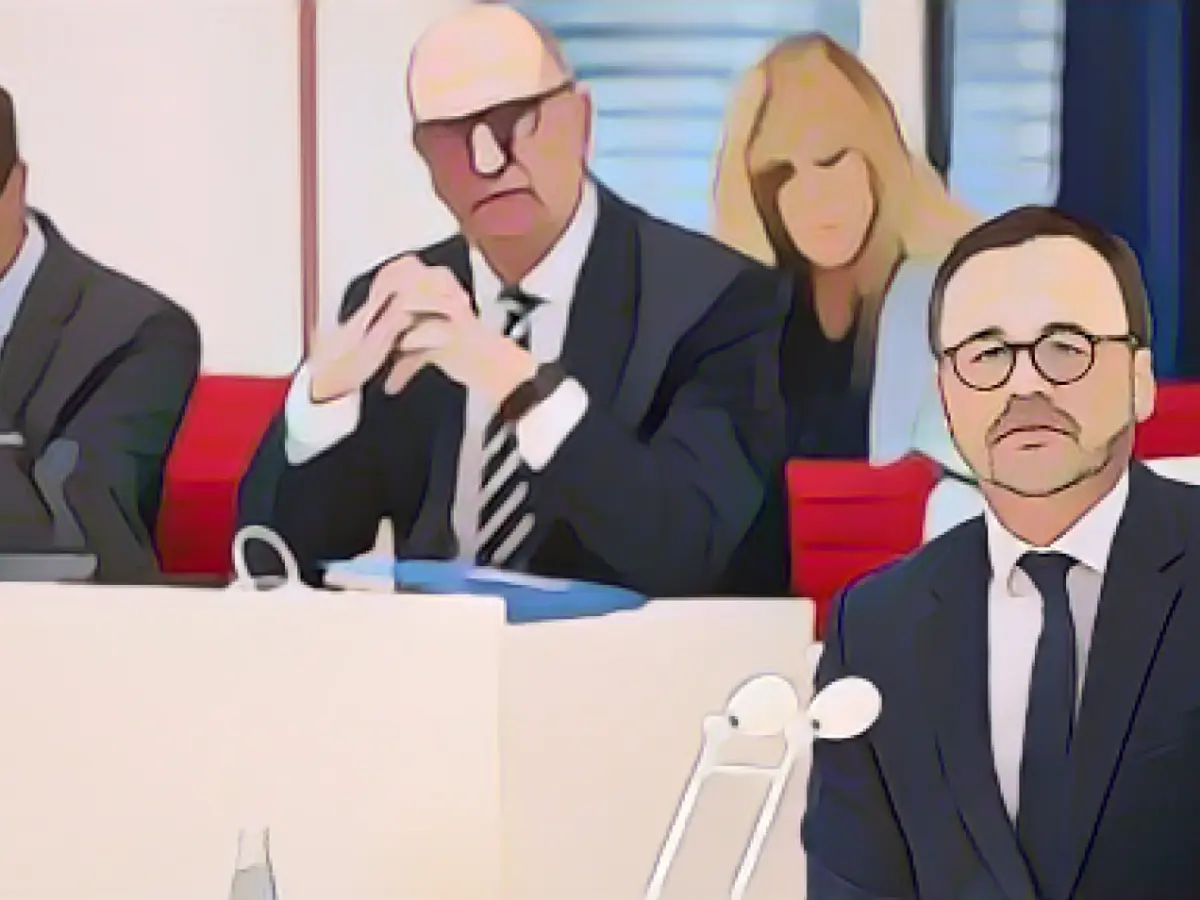Parliamentary Groups CDU and SPD Wary of Left's AfD Ban Proposal
Political parties in Brandenburg's state parliament, including the CDU and SPD, have voiced reservations towards the left-wing faction's plan to ban the AfD. The Left's call for a ban, proposed by their group leader, Sebastian Walter, was criticized by CDU parliamentary group leader, Jan Redmann, who deemed it as "half-baked." Redmann made references to unsuccessful ban proceedings against the NPD, saying that such attempts might even benefit the party in question.
Walter's ideas were deemed negligent by Redmann, who alluded to the potential damage they might cause to democracy. SPD parliamentary group leader, Daniel Keller, shared similar sentiments, indicating that the hurdles for a ban are quite high, and the demand should not be overused. By contrast, Green parliamentary group leader Benjamin Raschke supported a legal review of the ban.
Renewing his call for the AfD ban, Walter emphasized that the party served as a platform for "violent neo-Nazis." Walter claimed that he had been facing increased hostility from the AfD environment after promoting his ideas for a ban. An example of such hostility was a letter he showed during a recent press conference, where he was labeled as a "Jewish pig."
In response to Walter's statements, AfD leader Hans-Christoph Berndt accused him of losing his nerve due to poor poll results and failing to engage in meaningful discussions regarding the AfD. Berndt criticized Walter's shift in stance, from promoting engagement to advocating for a ban, and argued that he was not capable of handling the AfD argumentatively.
The Brandenburg Office for the Protection of the Constitution labeled the AfD state association as a suspected right-wing extremist party, a classification the AfD adamantly contests. Federal Interior Minister Nancy Faeser (SPD) voiced doubts about initiating ban proceedings due to the high legal hurdles, asserting that democratic principles must be upheld.
Related Content
- The CDU and SPD, two major political parties in Bradenburg's state parliament, have raised concerns over the left-wing faction's proposal to ban the AfD due to legal complications, preference for counter-extremism via political means, and concerns that a ban may send the wrong political signal.
- CDU parliamentary group leader Jan Redmann criticized the idea as legally untenable and potentially beneficial to the AfD, referring to the failed ban proceedings against the NPD in 2017.
- SPD parliamentary group leader Daniel Keller argued that the hurdles for a ban are excessively high, and the demand should not be used excessively.
- Left-faction leader Sebastian Walter renewed his call for an AfD ban, emphasizing that the party served as a platform for "violent neo-Nazis."
- Hans-Christoph Berndt, the AfD parliamentary group leader, attacked Walter for losing his nerve and failing to argue against the AfD effectively, while the classification of the AfD state association as a suspected right-wing extremist party, announced by the Brandenburg Office for the Protection of the Constitution, was fiercely contested by the AfD.
Sources:
Enrichment Data: The opposition to banning the AfD from German political parties, specifically the CDU and SPD, stems from complex arguments, such as the legal challenges involved and the potential risks to democratic principles. The CDU fundamentally opposes party bans, relying on democratic processes to counter extremism, while the SPD faces dim prospects for another term. Critics argue that banning a party that has substantial electoral support could undermine democratic principles, as such parties exist in other European countries without being outlawed.








